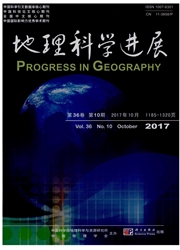

 中文摘要:
中文摘要:
1898年霍华德提出的“田园城市”是对城市的繁荣和发展带来昂贵代价的反思。宜居城市的提出,成为解决城市可持续发展的重要选择之一。目前宜居城市研究还是一个有待深入研究的新领域.本文总结了宜居城市的研究进展和主要学术观点,重点回顾了宜居城市概念、内涵等研究内容,集中讨论了宜居城市的影响因素、评价体系和评价方法,并指出宜居城市研究还存在的不足之处和未来的研究方向。
 英文摘要:
英文摘要:
In 1898, Ebenezer Howard, worrying about the problems behind the prosperity of British cities, put forward the theory of "garden city". One hundred years later, with the acceleration of urbanization, the same problems occur in China. Recently, the concept of "livable city" is presented as a realistic choice for sustainable urban development. In 2005, "Livable Beijing" became a strategic development goal of Beijing in its Master Plan. Since then the need for theoretical studies of "livable city" is urgent. However, the research field of livable city is still a new one. The concept and relevant methodology of "livable city" is still vague. On this background, this paper reviews current research progreses and trends in this field, summarizes general understandings of "livable city", and discusses the evaluation structures and methods of it. It also points out three deficiencies in current research: first, theoretical study of "livable city" is still weak, and there are few studies on driving forces of livability; second, in terms of the research scale, studies on urban livability are focused more on city-based studies than on community-based and regional-based studies; and third, for research approaches, most studies have emphasized the method of presenting an evaluation index system, but new evaluation methods are inadequate.
 同期刊论文项目
同期刊论文项目
 同项目期刊论文
同项目期刊论文
 期刊信息
期刊信息
